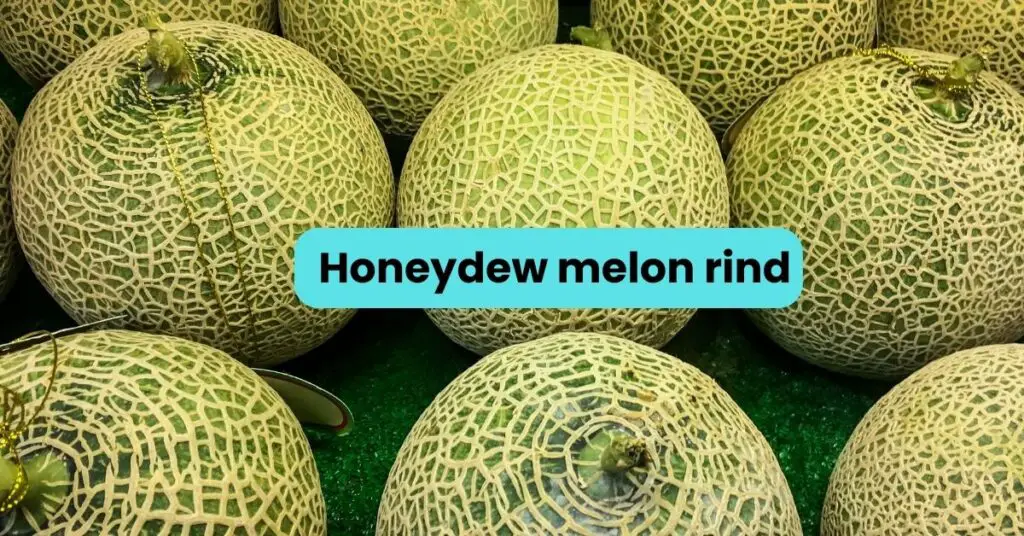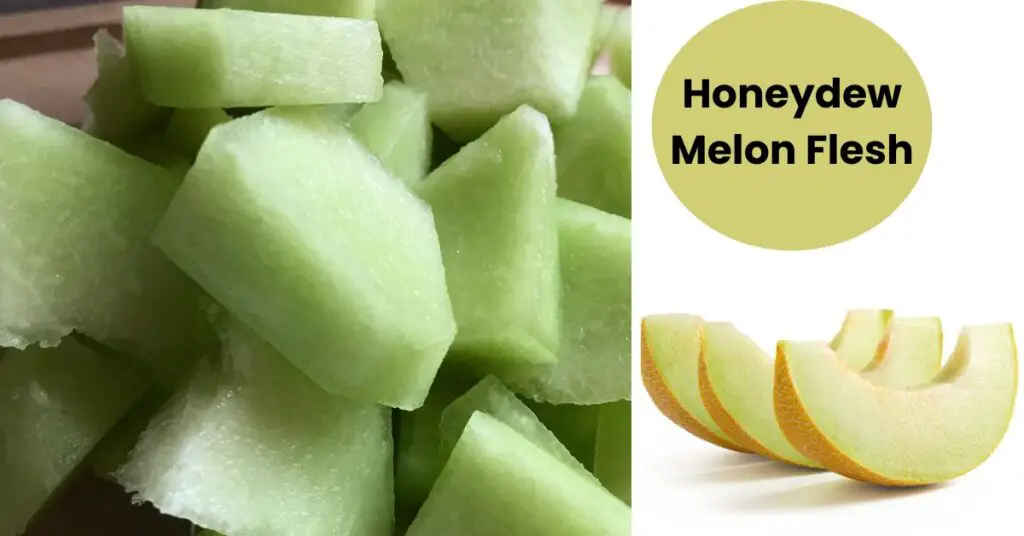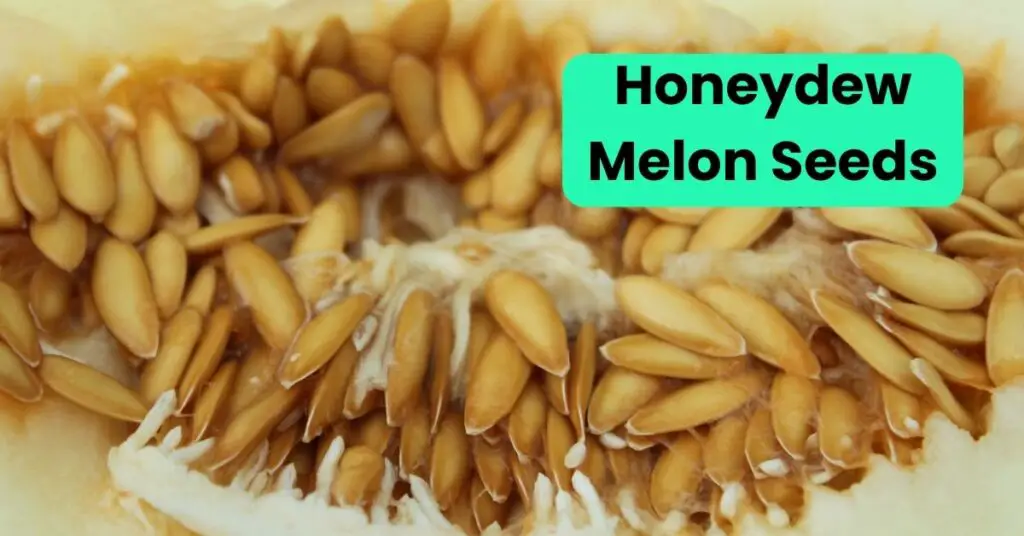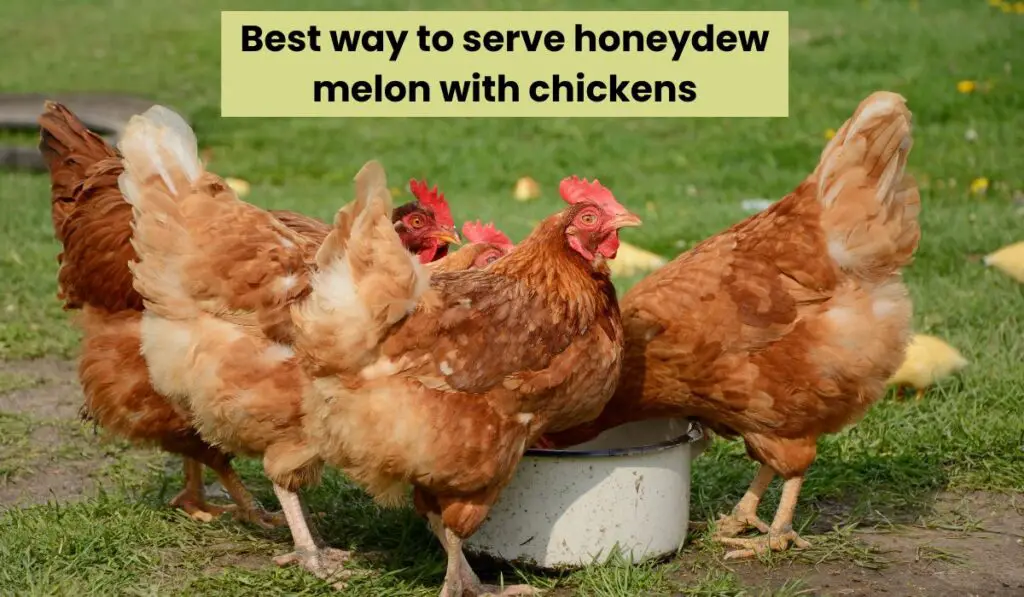The Honeydew melon is a sweet and tasty fruit. Its flesh is incredibly nutritious and pale green. A delicious fruit that is consumed all across the world is the honeydew melon. Honeydew melons contain numerous essential vitamins, minerals, and nutrients. Let’s continue to the primary subject, “Can hens eat honeydew melon”?
The unexpected response is that “yes,” precisely, your chickens can consume honeydew melon. However, it tastes a little bitter and has excessive natural sugar. As a result, serve your bird friends with honeydew melon as a treat because excessive honeydew melon consumption can lead to various ailments in your feathered pals.
Let’s now discuss every issue that arises about this query. So, to acquire all the facts, please read this post through to the end.
Is It Okay to Feed Honeydew Melon to Chickens?
For your picky pals, honeydew melon is a nutritious snack. You can give your chickens this delicacy without worrying about harm, but remember to take it out the honeydew melon seeds first because it is complicated to consume. Both Vitamin C and Vitamin A are abundant in honeydew melon. It also contains a fair quantity of calcium, iron, and potassium.
3 Things You Should Be Curious to Know About Honeydew Melon for Chickens:
Before offering this delectable food to your backyard chickens, you should know the following facts about honeydew melons:
Can Chickens Eat the Rind of Honeydew Melon?

This beautiful, sweet fruit’s rind is edible to chickens. It is the area closest to the flesh. It is pale green and lacks that meat’s testy and juicy texture. However, a bunch of honeydew melon has yet to be given to your chickens one at a time, as this causes various health issues for your feathered companions.
Can Chickens Eat the Flesh of Honeydew Melons?

Honeydew melon flesh is juicy, sweet, and nutritious, and its color is whitish-yellow. This flesh has softened, and it will take your fowl buddies a short time to end it. Your backyard chickens feel pleasure in consuming this flesh.
Can I Give Honeydew Melon Seeds to My Chickens?

Honeydew melon seeds are perfectly safe for chickens to eat. But if the seeds are hard, avoid giving them to your backyard chickens. If you want to add these seeds to the feed of your chickens, then you can soak these overnight and also for 4 to 5 hours; then, it becomes soft and easy to digestible for your chickens.
5 Health Benefits of Feeding Honeydew Melon to Chickens:
A fantastic option for you is honeydew melon if you want to feed your backyard hens with it. The following is a list of some health benefits it offers your hens.
Honeydew Melons Contain a High Amount of Vitamin C
Vitamin C, abundant in honeydew melon and vital for your feathered companions’ bodies, plays a crucial role in their metabolism. Free radicals are also found in hens’ bodies, contributing to several disorders’ emergence. These free radicals can lead to cardiovascular disease and issues with blood flow. Free radicals have negative consequences on the chicken body, but vitamin C helps to mitigate them. This vitamin is necessary for chickens to maintain the health of their blood vessels, skin, and immune systems and to guard against various respiratory and systemic illnesses. The strengthening of the immune system also benefits significantly from vitamin C.
Honeydew Aids in Promoting Healthy Digestion in Chickens
Additionally, there is a respectable amount of fiber in honeydew melon. Fiber plays a critical role in the digestive system’s efficient operation. Your chicken will get a solid and healthy digestive system if you can provide fiber through honeydew melon and other high-fiber fruits.
Water and electrolytes are Found in Great Amounts in Honeydew
A great source of water is the honeydew melon. It is roughly 90% water. Provide your hens with honeydew melon, which is high in water and keeps your backyard chickens hydrated if you see that they are dehydrated, especially on hot summer days. Electrolytes like potassium, magnesium, calcium, and sodium are abundant in honeydew melon. For your chickens during days of extreme heat, honeydew melon is a superfood since it contains both water and essential electrolytes.
Beneficial to Vision and Eye Health
Two healthy antioxidants that are present in honeydew melon are zeaxanthin and lutein. Both of them have a significant impact on the development of eye health.
Important for Bone Health
Magnesium, folate, and vitamin K are essential nutrients for your feathered friends’ bones to be strong and healthy. All these nutrients contribute to your chicken bones’ structure, durability, and activity.
How Often Can I Give Honeydew Melon to My Chickens?
Only once a month should you feed your backyard hens honeydew melon. You have enough time to share this delectable gift with your bird friends.
How Much Is Honeydew Melon Okay for My Chickens?
I will advise you to give one whole honeydew melon to each group of six backyard hens because a chicken’s diet consists of 90% other feeds and 10% of any fruit or vegetable reward.
How Can I Feed Honeydew Melon to My Chickens?

Sharing honeydew melon snacks with your bird friends is accessible in multiple ways. So, let’s talk about some excellent honeydew melon feeding ideas for chickens.
- You may share it with the chickens by slicing a fresh honeydew melon and scattering the slices across the yard.
- The most effective way to give your backyard hens this healthy treat is also this. It is possible to chop up the honeydew melon beforehand, then freeze it for a while. Then share this treat with your picky birds.
- The canned honeydew melon is safe for your hens to eat, but I wouldn’t recommend giving them canned honeydew melon because too much sugar might be dangerous to them.
Signals that your chickens enjoying honeydew melon?
Your backyard hens will display the signs listed below:
- While eating it, they will laugh and make other noises.
- They may consume it as swiftly as they can using their beaks.
- After consuming it, they grow stronger.

What Is the Health Risk of Giving Too Much Honeydew Melon to Chickens?
Overfeeding backyard hens with honeydew melon can have various adverse health effects. It is well known that honeydew melon can elevate blood sugar levels and cause disorders like diabetes because it contains so much sugar. Diarrhea could also affect your chicken. But never give your flock of feathered pals more honeydew melon than you need to.
Final Thoughts
The honeydew melon is a beautiful and delicious treat for your feathered buddies. It offers vital vitamins, minerals, and nutrients to keep your flock healthy. Hens may eat any portion of the honeydew without any problems. However, overeating honeydew melon may have specific adverse effects. Therefore, only feed it to your feathered friends occasionally as a treat to keep them active and pleased.
Frequently Asked Questions About Honeydew Melon: –
What to do if the chicken overeats the honeydew melon?
The best action plan is to contact your pet vet and heed their advice if your bird companion overeats honeydew melon. Your backyard hens can also receive excessive water, and you can feed them without sugar for a few days to maintain an average blood sugar level.
Can chickens eat rotten or spoiled honeydew melon?
No, and never offer spoiled or rotten food to your poultry friends. There are numerous harmful bacteria present in it. Every time you consume meals containing honeydew melon that is rotting or moldy, your chicken gets unwell. Therefore, refrain from giving your bird friends rotten honeydew melon.
Can baby chicks eat honeydew melon?
Yes, they can eat, but only after three weeks. Do not give your small chickens the fruit’s seeds even if they will like and enjoy eating it. They have weaker digestive systems than adult chickens because of this.
Can chickens eat unripe honeydew melon?
Not, feed your chickens the honeydew melon, which is unripe. They contain dangerous cucurbitacin E, which is hazardous for humans and chickens.




